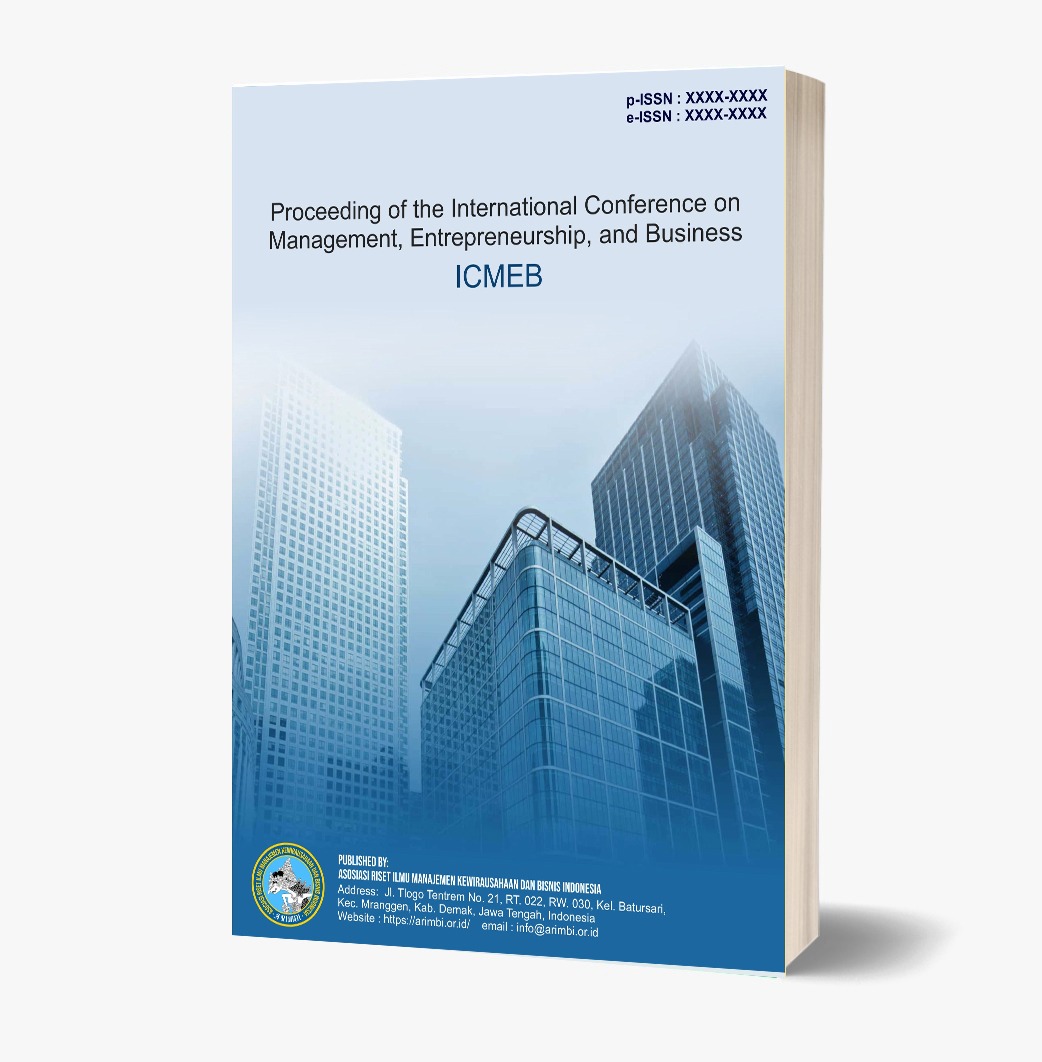MUTATION PATTERN BASED ON TALENT MANAGEMENT: CASE STUDY AT FINANCIAL AND DEVELOPMENT SUPERVISORY BOARD INDONESIA
Keywords:
Mutation employee, Rotation, Career developmentAbstract
The purpose of this research is to build a mutation pattern policy based on Justice, Certainty, and Benefit. this policy is associated with talent management that has been implemented in Financial and Development Supervisory Board (BPKP). The method used in this research is a case study method based on phenomena that occur in BPKP. the result of this research is the formation of a mutation pattern policy, namely mutations based on organizational needs with the pattern Organization - Organization - Domicile and mutations based on employee needs. with the mutation pattern policy, employees are expected to improve their performance. But this research does not further examine the effect of this mutation policy on employee performance and also does not consider other factors such as age, gender of employee and Fund to apply this policy
Downloads
References
Angliawati, R. Y., dan Fatimah, F. (2020). Peran Talent Management Dalam Pembangunan Sdm Yang Unggul. Jurnal Sain Manajemen, 2(2), 28–40.
Badan Pengawasan Keuangan dan Pembangunan. 2020. Peraturan BPKP Nomor 5 Tahun 2020 tentang Manajemen Talenta
Collings, D. G. dan Mellahi, K. (2009). Strategic talent management: A review and research agenda. Human resource management review, 19(4), 304-313
Darmawati, H. (2021) “Pengaruh Knowledge Management dan Talent Management terhadap Pengembangan Karir Karyawan,” J. Ris. Manaj. dan Bisnis, vol. 1, no. 1, pp. 36–41, doi: 10.29313/jrmb.v1i1.38
Hasibuan, S. M. (2019). Organisasi dan Motivasi –Dasar Peningkatan Produktivitas. In Bumi Aksara Jakarta.
Huang, H. J. (1999). Job rotation from the employees’ point of view. Research and Practice in Human Resource Management, 7(1), 75-85.
Mengkuningtyas, Y (2021) “Pengaruh Motivasi dan Manajemen Talenta terhadap Pengembangan Karier Pegawai di Badan Pemeriksa Keuangan Republik Indonesia,” J. Ilm. Adm. Publik (JIAP)Vol. 6 No. 3, vol. 7, no. 2, pp. 216–225
Mujab, S., Rosa, A. T. R., & Gumelar, W. S. (2023). Analisis implementasi kurikulum merdeka (Studi
kasus SMK Al Huda Kedungwungu Indramayu). Jurnal Pendidikan dan Konseling, 5(2), 538-545.
Purnamasari, N. P. D. dan D. K. Sintaasih. (2019). “Pengaruh Pengembangan Karir, Kompensasi, Dan Iklim Organisasi Terhadap Loyalitas Karyawan,” E-Jurnal Manaj. Univ. Udayana, vol. 8, no. 9, p. 5762, 2019, doi: 10.24843/ejmunud.2019.v08.i09.p20
Sartika, A., Nurman, N., Natsir, U., Burhanuddin, B., & Ali, A. (2024). The Effect of Mutation and Rotation On Employee Performance at The BPJS Employment Office Palu City Branch. Economos: Jurnal Ekonomi dan Bisnis. https://doi.org/10.31850/economos.v7i1.3057.
Silzer, Robert F., & Dowell, Ben (2010). “Strategic Talent Management Matter”, dalam Robert F. Silzer & Ben Dowell (peny.). Strategy-Driven Talent Management. A Leadership Imperative. San Francisco: JosseyBass





